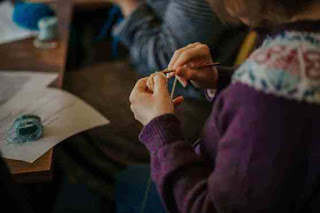Ethics, the personal, and the need to care for yourself as researcher
Archived from July 2015
So, not posted for a
while – the PhD engine caught up speed and carried me along. I have been / am
busy with writing and presenting opportunities… all very lovely. The Facebook
research group is amazing and I am tackling the analysis of hundreds of
comments.
And then… and then… a stunning blow from left-field.
A warm, talented, generous supporter of the research – M -
who had been emailing me with comments and advice, not participating actively
in the Facebook group, but known to many members – took her own life following
a long and difficult personal battle.
I was really rocked by this – our electronic ‘relationships’
aren’t really weak ties, are they… and the Facebook research group is an
example of how human beings can find a significant connection despite not
having met ‘IRL’. In addition to the impact on me personally, I needed to act
ethically and appropriately as a researcher, but I had no idea how to handle
the situation.
I spoke to my lead supervisor, who was kindly supportive and
keen to understand how she could support me as ‘person’ first and ‘student’
later. She arranged to speak to the chair of the university ethics committee –
a psychologist – to seek advice on a personal and professional level.
I was put in touch with Big White Wall – a free counselling
and advice service subscribed to by many UK universities – perhaps your
institution uses this service too. I didn’t know about it before, but wondered
if I should have.
I had supportive and practical advice as a researcher – a
specific post on the Facebook group, a reminder that if participants were
distressed and wanted to remove themselves from the project, then they could, a
thread providing contact details for mental health wellbeing charities such as
MIND and The Samaritans. Most difficult – a note to the family expressing
condolence, informing them about M’s contribution to research and a request for
them to consider whether I had their permission to use the data or whether they
would like it destroyed.
I am moved by the support at a personal level - Part of my
own journey to this PhD focus has been a battle with mental health issues. My
supervisors’ care and concern has been touching, as have the suggestions from
an advisor on the ethics committee and the incredible pulling together of the
research participants as they supported one another.
As a researcher, I think there are two areas I need to think
about. Firstly, I have been reminded that the research itself – on how working
with textile crafts can have a positive impact on mental health wellbeing – is
really important. Many participants feel that knitting or crochet has ‘saved
their life’ and I want to explore why and how this is. However, I also want to
consider how universities support researchers and equip them with tools to
manage unforeseen, difficult or traumatic events in their research processes.
My university has already organised training for PhD supervisors on supporting
mental health issues emerging in research. I am hoping to speak to the ethics
committee and other students about how situations like this could be managed in
the future.
I had excellent advice, but it was delayed as there was no
existing protocol to follow. This is not a criticism, but a reminder that
perhaps institutions and individuals need to think about the ethics of care
here – how can researchers be encouraged to more fully consider ways to protect
themselves from harm, as well as participants?
RIP M 2015




Comments
Post a Comment